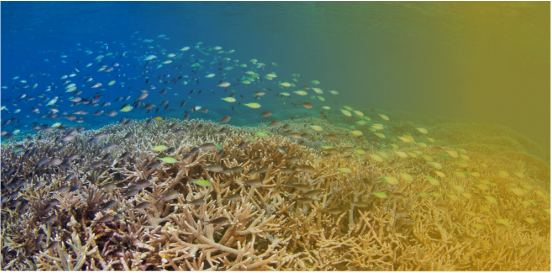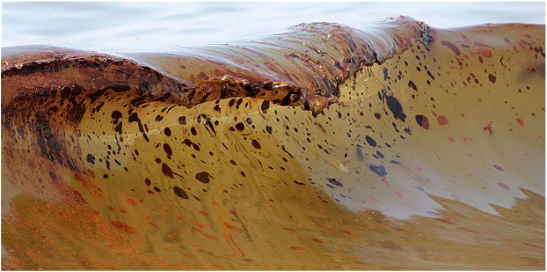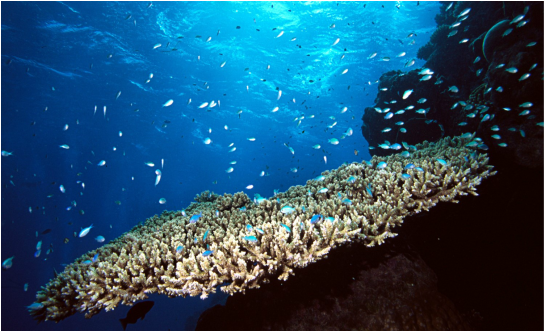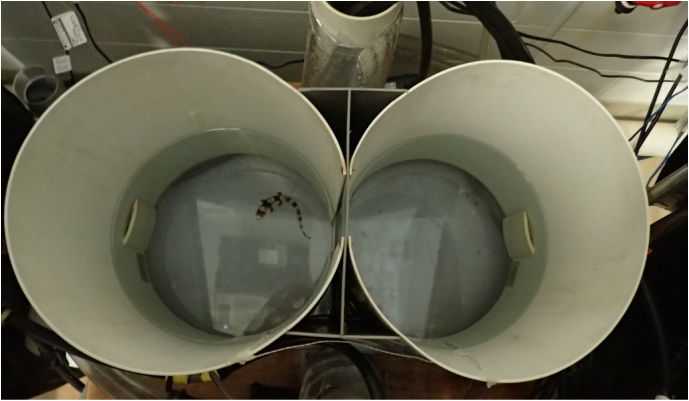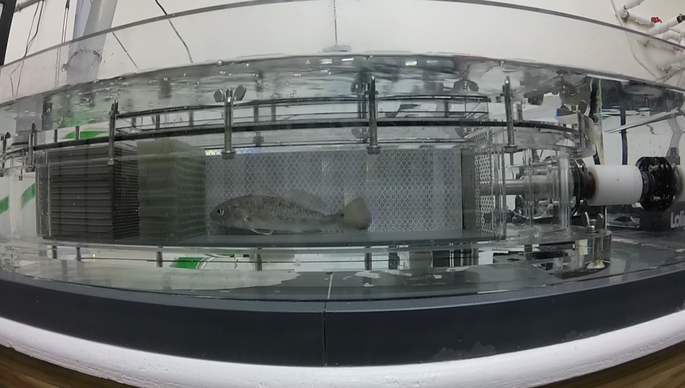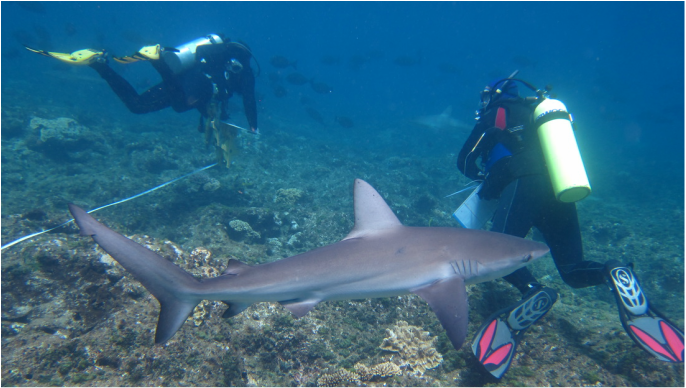Behavioral Eco-Physiology X Environmental Stress
Sediment loading / Turbidity
Sedimentation is a substantial threat to aquatic ecosystems and a primary cause of habitat degradation on near-shore coral reefs worldwide. Although numerous studies have demonstrated major impacts of sedimentation and turbidity on corals, virtually nothing is known of the sensitivity of reef fishes. This research stream focus on the effect of sediment-induced turbidity on key life-history stages of coral reef fishes, including settlement and habitat selection, finding food and avoiding predators, and overcome chronic metabolic stress caused by the sediments. Our main research focus is the likely impact on key functional groups of fishes and the ultimate outcome for ecosystem resilience, with a view to support management of coastal socio-ecological systems.
|
Industrial effluent / pollution
This research stream focus on the impact of pollution and industrial effluents on the physiology and behavior of marine fishes. It is estimated that more than 100.000 man-made chemicals are in routing use worldwide, and the main sink for suck chemical are aquatic environments. Unintentional or unregulated chemical exposure can severely destabilize the health of species and ecosystems, and impact food security. This research stream is primarily focused on the effect of contamination on the resilience and survival of ecologically and commercially important fish species, using state-of-the-art toxicological assays spanning sub-cellular function (e.g. mitochondria) to whole animal ecologival and physiological performance (e.g. behavioral changes, swimming respirometry, cardiorespiraroy examinations).
|
Ocean warming/Marine HeatwavesIncreased ocean temperature due to climate change is arguably the largest global threat to coral reef ecosystems. It is estimated that more than 30% of the worlds coral reefs have disappeared in the last 30 years, and the rate of decline is escalating with new projections estimating >95% loss of coral reefs globally before 2100. This research stream is focused on the capacity of reef organisms to tolerate, acclimate, or adapt to rising ocean temperatures, with a particular emphasis on fishes of ecological or commercial importance. For this research, we utilize a blend of field surveys and behavioral experiments, with high-tech laboratory based assessments of behavioral and physiological (particularly metabolic) responses.
|
Behavioral preferenceA novel research direction that we explore is the role of behavioral avoidance or preference of reef organisms for specific habitat conditions relative to the physiological and ecological impact of environmental stressors (e.g. sediment loading, turbidity, oil pollution, water temperature). There are numerous controversies in contemporary literature highlighting differences in realized niches versus absolute niches in reef organisms, and between environmental conditions and physiological optima for individual species. This research stream is designed to specifically address these controversies, by quantifying innate preferences for particular water-quality conditions and the conditions that may cause individuals to relocate into new habitats long before genetic adaptation can occur.
|
Metabolic performance
Metabolic rates, energy requirements and stress responses of aquatic organisms can be precisely quantified from measurements of oxygen consumption rates through swimming and resting respirometry. When performed correctly, these distinct approaches are extremely powerful tools for studies of eco-physiology and conservation physiology. We use a variety of these state-of-the-art techniques for my research, as can be seen here: YouTube
|
Field monitoring
Long-term and detailed monitoring of marine ecosystems are necessary to fully understand and appreciate the changes that are occurring right under the waves. Along with behavioral studies of species in the wild, surveys of species diversity and abundance form the basis for much of our understanding of aquatic ecosystems today.
|

